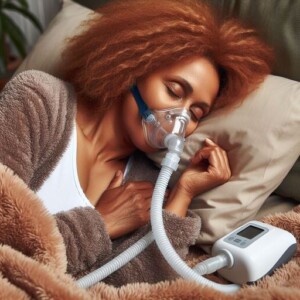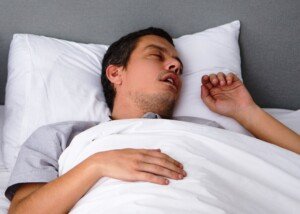
The humidifier tank of your CPAP machine should not attract mold. If it does, it’s not being cleaned thoroughly.
The issue, then, is just how should the humidifier tank be cleaned to prevent mold buildup?
“Any time water is allowed to ‘stand,’ mold and mildew can develop,” says Joseph Krainin, MD, board certified in sleep medicine and neurology and founder of the online sleep apnea clinic Singular Sleep.
“Many CPAP users don’t realize that the CPAP humidifier chamber needs to be replaced; it is generally recommended that this be done at least every six months.
“Vigorous hand washing with mild soap and water or use of a CPAP cleaner such as the SoClean will help prevent this issue. ‘Dry cleaning’ devices such as SoClean are generally superior for the prevention of mold and mildew in your humidifier.”
An ideal way to keep your CPAP’s humidifier tank clean and always free of mold and mildew is to employ both the vigorous hand washing and the SoClean system.
Difficulty Complying with CPAP Use
Even if you’re not compliant with CPAP therapy, the humidifier tank can still get moldy.
Non-compliant use may consist of using the machine all night — but only several nights per week, and/or using it for only part of the night (e.g., for only three hours).
When used as indicated for the treatment of sleep apnea, the CPAP machine is highly effective — the gold standard of treatment — for reducing the AHI into the medically acceptable range.
Oral appliances that are custom fitted by one’s dentist have been shown to be effective in some cases of mild obstructive sleep apnea, especially when the obstruction is triggered by temporomandibular joint disorder (TMJ-D).
In moderate and especially severe cases of obstructive sleep apnea, however, oral appliances are not recommended by sleep medicine doctors.
Today’s CPAP machines are much more tolerable than those of the past.
Making sure they are clean and free of mold will make this therapy even more tolerable.
 In 2013 Dr. Krainin was elected a Fellow of the American Academy of Sleep Medicine, an honor reserved for sleep doctors who’ve made significant contributions to the field in education, research and service.
In 2013 Dr. Krainin was elected a Fellow of the American Academy of Sleep Medicine, an honor reserved for sleep doctors who’ve made significant contributions to the field in education, research and service.
 Lorra Garrick has been covering medical, fitness and cybersecurity topics for many years, having written thousands of articles for print magazines and websites, including as a ghostwriter. She’s also a former ACE-certified personal trainer.
Lorra Garrick has been covering medical, fitness and cybersecurity topics for many years, having written thousands of articles for print magazines and websites, including as a ghostwriter. She’s also a former ACE-certified personal trainer.
.


























